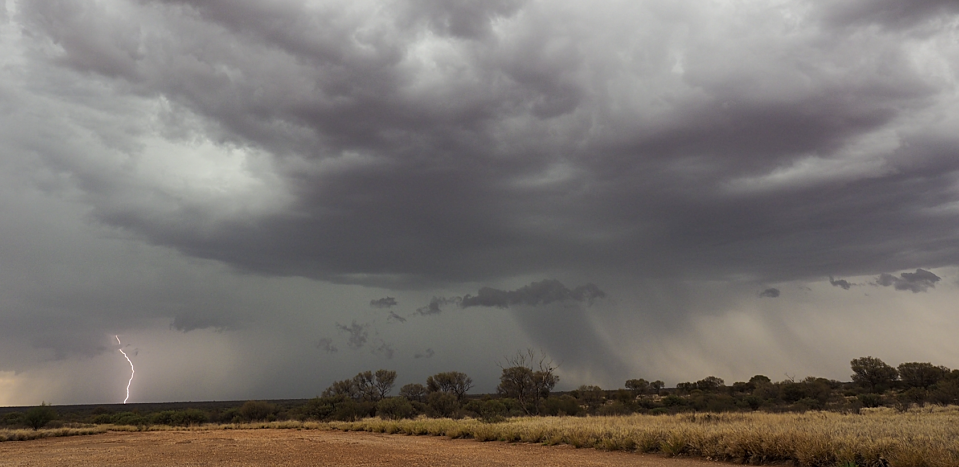
One Nation’s chances as a dominant conservative party are piñata-like
Posted on 11 Feb 2026
Opinions polls insist Pauline Hanson's fortunes are on the rise, but it is likely that enthusiasm…
Posted on 12 Dec 2023
By David Crosbie

Doing good work in the community is great, but it isn’t enough. The charity and not-for-profit sector needs to get better at sharing its stories of hope, compassion and connection, writes Community Council for Australia CEO David Crosbie.
The media have always favoured negative stories, conflict and catastrophe over good news.
This sentiment is reflected in the old journalism adage “If it bleeds, it leads.”
With the rapid growth of the attention economy, where clicks mean money, this approach to news values seems to have been turbocharged.
One of the more revealing studies of media tone and sentiment published recently involved an analysis of 23 million headlines from 47 popular news outlets across the United States from 2000 to 2019.
The researchers used psychologist Paul Ekman’s six basic emotions (anger, disgust, fear, joy, sadness, surprise) plus neutral to automatically label the headlines.
“Results show an increase of sentiment negativity in headlines across written news media since the year 2000. Headlines from right-leaning news media have been, on average, consistently more negative than headlines from left-leaning outlets over the entire studied time period.”
The research found an increase of 104% in headlines denoting anger and 150% in headlines denoting fear. Sadness was up 54%, disgust was up 29%, neutral was down 30% and joy was up by around 50% until 2010 before joining in the decline.
These research findings confirm what many report about the daily experience of finding out what is happening in our world – the news has become increasingly bleak and concerning.
Watching the late-night news can feel as though you are watching an unedited listing of local police crime reports: car accidents, assaults and brawls, break-ins, fires, shootings, murders, all one after the other.
Crime seems to be everywhere. And yet, that is clearly not the case.
In reality, Australia is becoming an increasingly safer place.
Crime is continuing to decline. Our per capita murder rate has fallen by more than 50% since the early 1990s, physical assaults are down 39% since 2009, threatened assaults are down more than 40% and robberies are down 50%.
One of my tasks each day is to review major news outlets and inform the CCA Daily Diary email list of significant events.
Reading the Courier Mail each day over the past 12 months, you could be forgiven for thinking Queensland was in the grip of an out-of-control youth crime spree that was ignored by a hapless Palaszczuk government.
In fact, the real story is that crime in Queensland is generally on the decline and youth crime specifically is following this downward trend – albeit with some variation during the COVID pandemic.
The click-through, like-or-dislike binary social media feeds don’t do too much better. The sensational, the embarrassing, the catastrophic is invariably more popular than the good news story.
There are amazing good-news stories happening all the time, all around our world. If you go looking, you can find thousands of very positive stories about remarkable human achievements.
For example, we are beginning to roll out an effective vaccine for malaria – likely to save the lives of half a million African children each year.
China, meanwhile, is building renewable energy sources faster than anywhere else in the world – all at a scale previously unimaginable.
"If good news is less valued in the public domain, where does that leave us?"
I regularly check positive news sites (there are a few good ones) not just so I feel better about the world, but also to find the good news stories that often attract scant attention in our shouty attention-grabbing, outrage-fuelled mainstream media.
I confess to also enjoying positive animal and nature videos, mostly puppies finding their best lives after experiencing neglect – somehow these stories regularly pop up in my algorithm-informed social feeds.
Apparently, the internet has determined I need more positive dog stories and fewer positive human stories.

Our sector is fundamentally about hope, about change, about good news.
How do we help build connections and strengthen communities if our information sources increasingly promote fear and mistrust?
If good news is less valued in the public domain, where does that leave us?
Imagine if every charity and community organisation in Australia committed to telling more good news stories about the true nature of human connection and realising our potential.
What if we were to flood news outlets and information platforms with positive stories of the changes our sector achieves for individuals, families and communities?

What if we could encourage our supporters to click through on the good news stories, to shift the algorithms more towards hearing about human achievements, about care and compassion, about love, about making a difference?
One of the key findings in the research about the growth of negative sentiment is that it is disproportionately driven by the right-wing side of politics, by those who seek to divide us in order to allow individual greed and power to flourish.
We see this every day in Australia as fear is increasingly weaponised for political gain.
The charity and not-for-profit sector is about unity, about connection, about building trust and strength in our communities.
Doing good work in our communities is great, but it isn’t enough.
Promoting and sharing our work, telling the good news stories we are delivering every day, talking about our impact, has become increasingly important in a world dominated by the attention economy.
If we are to change the prevailing negative discourse and build trust, we will need to change the way we promote and share stories about our work.
We may often be ignored, but maybe over time we can build an attention market for the most important human stories of hope and trust.
David Crosbie has been CEO of the Community Council for Australia for the past decade and has spent more than a quarter of a century leading significant not-for-profit organisations, including the Mental Health Council of Australia, the Alcohol and Other Drugs Council of Australia, and Odyssey House Victoria.

Posted on 11 Feb 2026
Opinions polls insist Pauline Hanson's fortunes are on the rise, but it is likely that enthusiasm…

Posted on 04 Feb 2026
As we move into 2026, I can’t help but think the world is wobbling a little.

Posted on 28 Jan 2026
The 2026 Australia Day Honours list delivered a sobering reality check. After reaching gender…

Posted on 28 Jan 2026
This year’s Adelaide Writers’ Week began with the cancellation of a talk by Palestinian-Australian…

Posted on 16 Dec 2025
As Australia prepares to welcome its one millionth refugee, human rights advocate and former…

Posted on 10 Dec 2025
What a year 2025 has been, particularly at a national level where the Parliament and politics as we…

Posted on 26 Nov 2025
Charities and not-for-profits can be outstanding advocates for their cause, their community, their…

Posted on 12 Nov 2025
Managing a charity or not-for-profit in Australia is often more complex than it may appear. On any…

Posted on 29 Oct 2025
One of the most contentious debates across many areas of human services is the for-profit versus…

Posted on 28 Oct 2025
Workers in the not-for-profit sector lift up communities, care for those in crisis and do work that…

Posted on 08 Oct 2025
The cost of climate change's impact on Australian life is increasingly well documented. The…

Posted on 08 Oct 2025
The Wurundjeri Indigenous people who live in and around Melbourne understand their environment as…